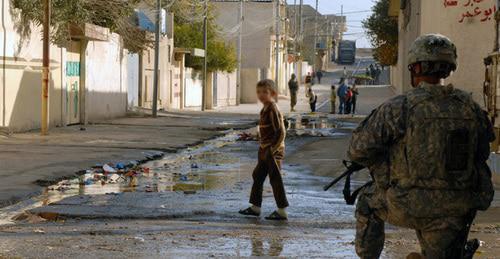
29 August 2017, 15:45
Chechen and Dagestani residents ask rights defenders to help return children from Iraq
On August 28, Alexander Mukomolov, a member of the presidential Human Rights Council (HRC), the chairman of the permanent commission for civil participation in peacekeeping and human rights protection in Northern Caucasus, met residents of Chechnya and Dagestan, whose grandchildren and nephews had been found in Iraq and Syria. This was reported by the press service for the HRC.
The meeting was attended by 25-30 people, and they talked of about 80 children. Relatives promised in the near future to pass on to rights defenders the information about how and when their children disappeared, reports the message posted today on the website of the HRC.
"At present, the most important thing is to activate the potential of all humanitarian organizations in order to pick up children and accommodate them to a safe place, to provide them with shoes and clothes and feed them. And then they can wait for further actions for their identification and transportation to Russia," the press service for the HRC quotes Alexander Mukomolov as reporting.
According to the information received from regional ombudsmen, 350 children are included in the list as brought to Syria and Iraq.
The Office of the Children's Ombudsman reports that most of those children are from Chechnya and Dagestan. However, there are also families from the cities of Rostov-on-Don, Kazan, and Ulyanovsk looking for their grandchildren and nephews, the "Ulpressa.ru" reports today.
Full text of the article is available on the Russian page of 24/7 Internet agency ‘Caucasian Knot’.




